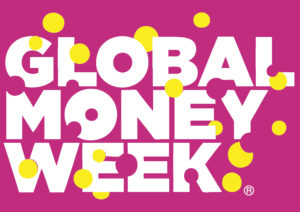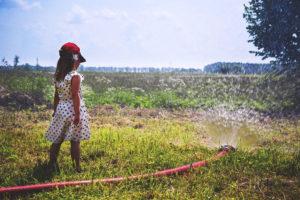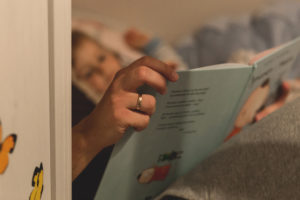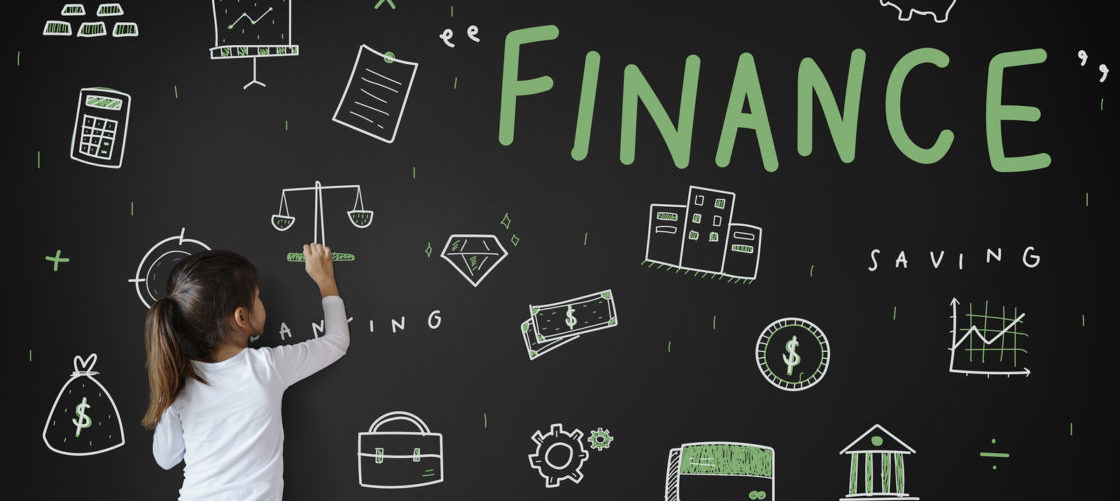If you’re a longtime (or even new) member of the Financially Fit Bootcamp, you’ve probably wondered what your finances would look like if you started learning these tools and strategies as a child. Why do we not prioritize financial literacy for kids?
 The question is valid. After all, the sooner you understand the Game of Money, the faster you can move on to investing or starting a business—whatever it is that ultimately powers your Freedom Generator.
The question is valid. After all, the sooner you understand the Game of Money, the faster you can move on to investing or starting a business—whatever it is that ultimately powers your Freedom Generator.
We’re rapidly approaching a time where people might not even be able to survive financially without a Freedom Generator. So starting the process of teaching financial literacy as young as possible is important. Not just for our individual financial well-being, but for the financial health of the world. Global Money Week has even made it the theme for 2018 programming.
The Obstacles To Financial And Entrepreneurial Literacy For Kids
The public school system is directed almost entirely toward creating competent employees who perform well for their employers. There’s little focus on personal finances—certainly nothing about entrepreneurship or the intricacies of starting and running a business. Not even any lessons on how to pay taxes.
“Preparing students for a career with an income, but not preparing them to manage their earnings is a weakness in our education system,” warns Debbie Pierce, President and CEO of Economic Literacy Colorado.
For better or for worse, parents have the biggest influence on a child’s outlook and approach to life. If there’s no positive reinforcement at home—or worse, bad role-modeling—on financial management, you might not recognize the need for financial literacy until the struggle starts as an adult. And if you grow up with the expectation that money will always be a source of difficulty, the spell of that myth might never be broken without conscious effort.
“We have to instill values and teach money life skills to our kids at a young age, or there is no way for them to be able to be financially literate and independent adults,” say Neale Godfrey, Chair & President of Children’s Financial Network and author of over 27 books about raising financially fit kids. “All kids ever see us do with money is spend it. They never see us pay bills, save and invest, or donate to charity. We have to stop making money be the biggest secret in the family.”
The Shifting Economy
According to a 2017 study by Upwork and Freelancers Union, an estimated 36 percent of the workforce in the United States is freelancing, either full-time or as a side-hustle on their fulltime job. At the current rate of growth, the majority of Americans will be freelance workers by 2027.
 But if our entire public education system is directed at producing competent employees, we’re headed for a real problem. The need for financial literacy is apparent now. And we’re moving to unavoidably necessary as this shift into the freelance and entrepreneurial economy deepens. At least W2 wages come with the protection of unemployment benefits, and many companies offer retirement plan matching. Freelancers and entrepreneurs are on their own.
But if our entire public education system is directed at producing competent employees, we’re headed for a real problem. The need for financial literacy is apparent now. And we’re moving to unavoidably necessary as this shift into the freelance and entrepreneurial economy deepens. At least W2 wages come with the protection of unemployment benefits, and many companies offer retirement plan matching. Freelancers and entrepreneurs are on their own.
The basics of financial responsibility—Pay Yourself First, Live Within Your Means and Protect Yourself—are foreign concepts to the majority of the population. Real financial sense just isn’t intuitive and needs to be taught.
“The gig economy is a precarious place if you are low-skilled or you don’t have some business sense…” says Robert McGuire, publisher of Nation1099. “That’s why the traditional emphasis in school on lifelong learning, adaptability, communication, teamwork and a broad foundation of knowledge will remain important and why entrepreneurship and financial literacy are newly important.”
Preparing Kids For The New Economy
Fortunately, a number of programs are tackling this issue from both personal finance and entrepreneurship angles. Some are designed to get kids used to using everyday financial tools like debit cards and maintaining the balance of checking account. Others focus on instilling the mindset needed to attain and maintain financial security. And some are even trying to pass on the torch of business ownership.
 What many of the creators of these programs have in common, though, is that they learned financial and entrepreneurial literacy at a young age. So they’re incredibly aware of how understanding Financial Freedom affected the trajectory of their lives.
What many of the creators of these programs have in common, though, is that they learned financial and entrepreneurial literacy at a young age. So they’re incredibly aware of how understanding Financial Freedom affected the trajectory of their lives.
“I had a waste disposal enterprise at the age of 10,” says Rendel Solomon, founder of One Stock One Future. “Actually, I knocked on doors in my neighborhood to see if people wanted me to take out their trash. This experience was my first of everything required to run a businesses including pricing, business development and operations. The pride I felt earning income outside of my parent’s occasional allowance was exhilarating.”
The Wealth Of Knowledge
You’ve heard the popular saying, “Money doesn’t grow on trees.” Implying money is only earned from employment. But where do employers get the money they use to pay their employees? And how do they manage that Cash Flow well enough to make sure they’re covering their own expenses?
Basic financial literacy might not answer those questions fully. But a full understanding elevates money to a tool that works for you rather than something you constantly have to work for. And that’s one of the basic tenets of financial literacy. And the first step to acquiring Financial Freedom.
“The lack of financial literacy has had devastating effects on individuals and on our economy,” say Godfrey. Consumer debt is at an all time high and we actually have a negative savings rate. In economy driven by spending, the economy can only grow when people have money to spend.
 Fortunately, as the demand for increased financial literacy has risen, the market has risen to meet it. In her own program, Godfrey has witnessed a lot of reason for hope particularly in some after school programs she mentored.
Fortunately, as the demand for increased financial literacy has risen, the market has risen to meet it. In her own program, Godfrey has witnessed a lot of reason for hope particularly in some after school programs she mentored.
In one exercise, a student was cast as a home buyer and another as a banker. The home buying child kept referring to the house as “their house,” and the student playing the banker replied, “It’s not your house until you pay off your mortgage… Until then, it’s the bank’s house and you will be paying my bank lots of money in interest until you do.”
“I burst out in tears in the back of the room,” Godfrey admits. “These kids profoundly understood a concept that many people do not. That is the impact these lessons can have.”
Changing The Way We Approach Life
Some of the programs focusing on entrepreneurship have actually altered the way students approach life.
“After allowing the [students] to sit down with millionaires and billionaires month after month, [they] started to look at school, what they focused on and problem solving differently,” says Jessica LaShawn, founder of Mogul Academy. “They started to see the world as a financially smart consumer and entrepreneur. A major game changer was when Jeff Hoffman, formerly of Priceline, told them that all they needed to do was find a way to solve a major problem easily to earn money. My students began to do that by developing slime businesses, coloring books, video game coaching businesses and rap lyric development workshops. Listening to the wants of their peers gave them ideas and they took over such markets in school and within their neighborhoods.”
“I want them to know what ownership feels like,” says Solomon. “I want them to look at their community not just a place that they live, but a place that they own. As these feelings of ownership start to permeate the children’s minds, and hopefully the parents’ and friends’ minds, I believe that can be a catalyst for change.”
This sounds like exactly what we need for an economy where financial literacy is mandatory.
The views and opinions expressed are those of the guest author and do not necessarily reflect the views and opinions of MindShift.money.
image credit: Bigstock/Rawpixel.com


Great article – I wholeheartedly agree!
Thanks, Susan!
This is a great article & financially literacy for kids is very much needed! I am working with my 7 year old on selling banana breads in our community. We calculated the cost to produce 1 loaf, keep at least 25% of the profits in the business & he gets paid! It makes the things that he buys much more meaningful.